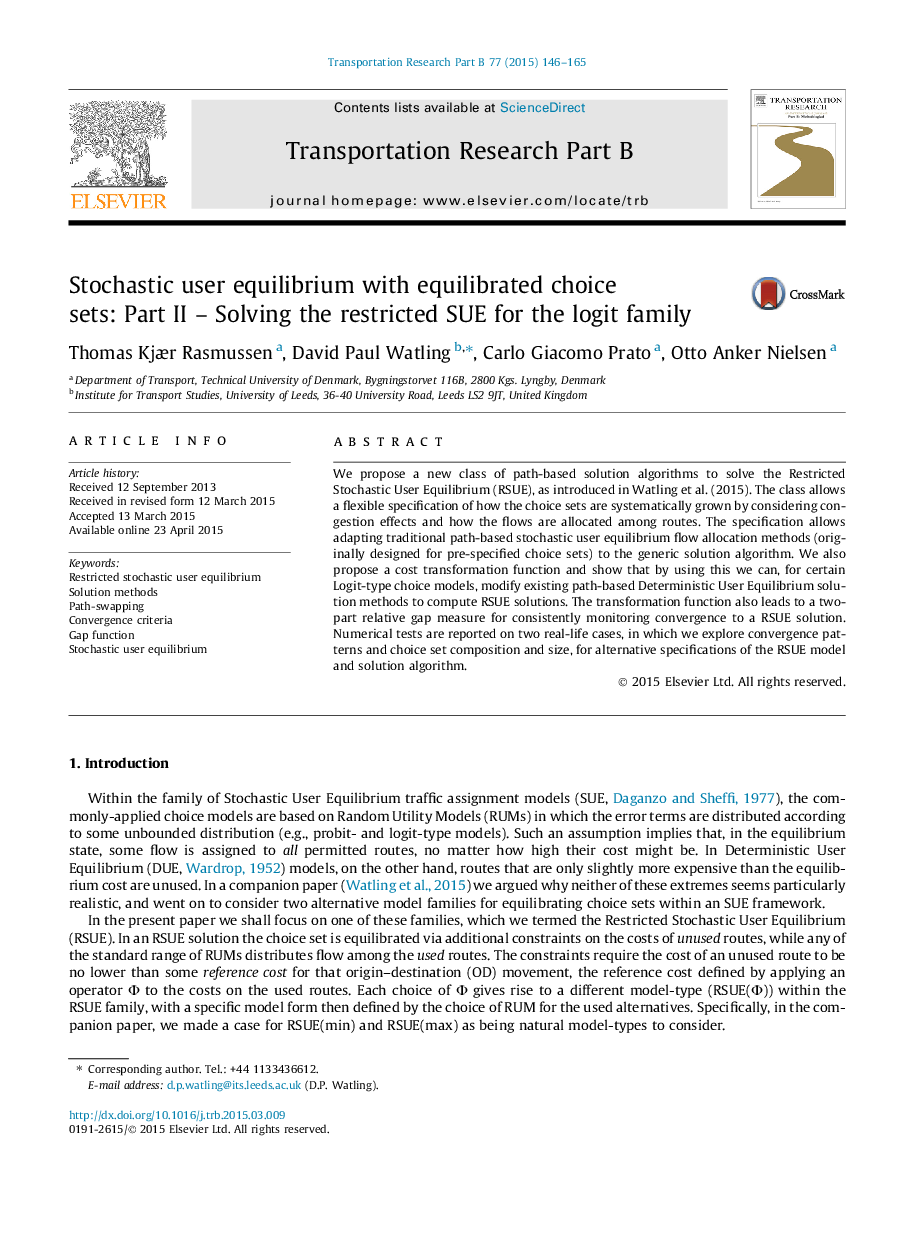| Article ID | Journal | Published Year | Pages | File Type |
|---|---|---|---|---|
| 1131838 | Transportation Research Part B: Methodological | 2015 | 20 Pages |
•A class of path-based algorithms for Restricted Stochastic User Equilibrium (RSUE).•We show how existing SUE-based algorithms may be modified for RSUE.•We show how existing DUE-based path-swapping algorithms can be applied.•Proposal of a two-element relative gap function for RSUE solutions.•Numerical tests on Sioux Falls and a large-scale, real-life network.
We propose a new class of path-based solution algorithms to solve the Restricted Stochastic User Equilibrium (RSUE), as introduced in Watling et al. (2015). The class allows a flexible specification of how the choice sets are systematically grown by considering congestion effects and how the flows are allocated among routes. The specification allows adapting traditional path-based stochastic user equilibrium flow allocation methods (originally designed for pre-specified choice sets) to the generic solution algorithm. We also propose a cost transformation function and show that by using this we can, for certain Logit-type choice models, modify existing path-based Deterministic User Equilibrium solution methods to compute RSUE solutions. The transformation function also leads to a two-part relative gap measure for consistently monitoring convergence to a RSUE solution. Numerical tests are reported on two real-life cases, in which we explore convergence patterns and choice set composition and size, for alternative specifications of the RSUE model and solution algorithm.
